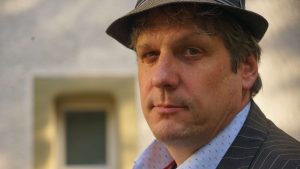Marc Kilchenmann doesn’t like to repeat himself, what he appreciates is delving deeper when he takes on a subject. For his piece Murhabala, he focussed the women’s struggle for freedom in Iran. In the musical form, overtone and undertone structures meet and clash, sometimes harmoniously, sometimes in dissonant frictions.
A portrait by Friederike Kenneweg


